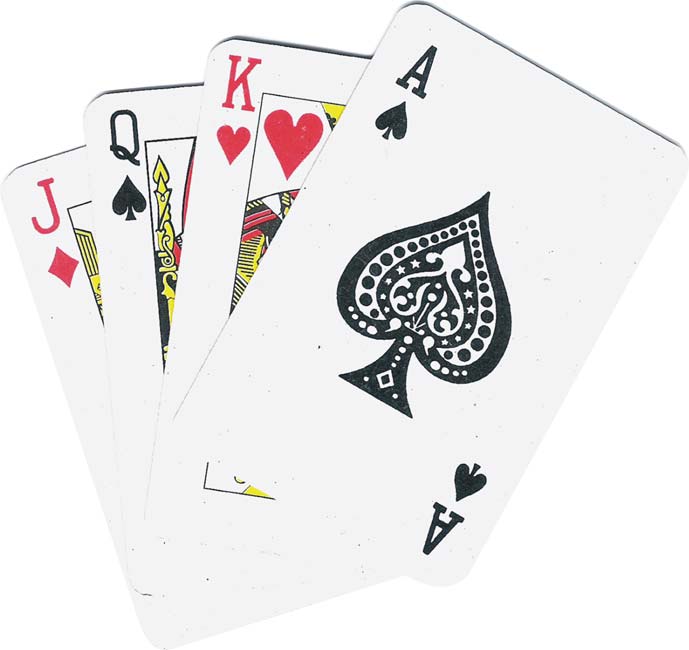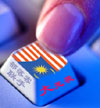It is indeed a blessing that we have been able to slip quietly and uneventfully into the new year after all that had happened in 2005. The heavy rainfall that soaked KL and the Greater Klang Valley on the last day of 2005 is to me a wonderful expression from the heavens in sending off the not so pleasant year with a good wash-off and thorough clearing of the spirits and minds, hopefully in preparation of a better year ahead.
Scanning through the major English dailies yesterday, I find that there is a common thread of hope among the local folks and prominent personalities being interviewed. Almost everyone wished for Malaysians of all races to unite and help each other to overcome the resurgence of fear and uneasiness brought about by a perceived wider rift and distrust among us, such feelings intensified no less by thoughtless politicians and bureaucrats who do not seem to understand nor appreciate the fine line of sensitivity in matters which are universally important to the individual and society as a whole.
Take for instance the subject of religion. If you think your religion is the only one that matters and that you demand others to respect your beliefs and your right to practise and participate in rituals in accordance to your faith, would it not be logical to your sensible mind that you should also accord the same respect to other individuals who choose to believe and put their faith in a different religion from yours?
And if other different religions are willing to look for similarities within their faiths and work together to highlight common truths and goodness for the sake of humanity, what good will it do you to refuse to acknowledge the positive effect on national unity that can only come out of it but instead insist on a non-negotiable rule all the time?
No one can seriously ignore the fact that after 48 years of Merdeka, our country is actually veering towards uncertain horizons. So much damage has been wrought on our multi-racial and multi-religious society as a result of misguided policies being allowed to go out of hand for over 3 decades that it is now very hard to ignore, much less deny that we have a serious problem going on here in presumably peaceful Malaysia.
The young generation, specifically those below the age of 20 and those still cocooned in local universities and colleges, are all wrapped up in themselves and within their own race groups, not the least interested in what is going on in other communities, less so in trying to widen their circle of friends outside of their own race. How could that have happened, if not for the failure of our education system as well as that of misguided policies in not realizing the importance of a multi-racial component in every aspect of our lives, particularly in civil services where the people of all races comes most in contact with.
And what about the other important group of people, those who are parents of school-going kids? I suppose a large section of this group, those aged 40 and above, would have witnessed first-hand the transition from the vibrant spirit of muhibbah which they experienced during their school days in the early 1970s and 1980s to the sad reality of segregation they see as a part of their children's lives now.
If a survey were to be done on the population of students in Chinese and Indian vernacular schools in the 1970s as compared to the 1990s, I'm quite sure that there was a quantum leap many times over, after taking into account the ratio of population increase during that period. And how many of these parents were the product of national schools back in the 1970s? And how many of these parents actually enjoyed having friends and teachers from different race and backgrounds and then why are they turning their backs on the national school system now, making the choice of vernacular education for their own kids?
Is this all about race? Or is it more to do with inequality or the perception of it that strikes fear and insecurity among those who feel that they will be a victim of circumstances if they do not take control by plainly not putting themselves into a situation where they may easily be subjected to negative forces of the mighty majority.
Racial politics has always been and shall always be an unavoidable fact of life in Malaysia. Why? Because we have deep-rooted cultural links to our past just like all the other civilisations in this world, the Europeans, the Americans, the Africans, etc. Surely we do not demand that they too must discard their cultural roots so that we can all be a united "Earth" race.
And the other fact that makes race such an unavoidable issue in Malaysia is also because our race is predominantly defined by our religions as well. In general, when we talk of the Malays, we associate them with Islam, the Indians with Hinduism and the Chinese with Buddhism and Christianity. Okay, don't nitpick on this generalisation because I know Christianity is widely practised by the Indians and other races and that there are also many other religions of importance such as Sikhism, but to go into fine details would make me go off-topic and long-winded.
People, including politicians, often make the mistaken observation that racial politics as it has been played out like a long-drawn soap opera in Malaysia is the real reason behind the serious problem of disunity in our country. The concept of Bangsa Malaysia is of course, very attractive in that among other things, we no longer have to fill up forms where we have to mark out whether we are "Melayu, Cina, India atau lain-lain". But would that solve the growing divide, assuming that all other factors governing our country remain pretty much the same?
Racial politics need not necessarily be bad and evil in this country, if the politicians who run the respective parties are always mindful of the need to be sensitive to the feelings of all other communities, and to avoid being confrontational and hostile when demanding that the needs of their own community should be looked into by the government. It is politicians who practise ugly politics that put a bad name and bad taste to the term "racial" politics.
Perhaps it is time to look at the problem of racial politics in this country not so much as an ugly way of doing business by our ruling party but more as a problem of ugly politicians who, no matter what form of politics they take, will always secure their position by manipulating the sensitivities of their own communities for personal political and economic gains. Do we need these ugly politicians in our society? Why do we still tolerate them?
The other important factor that is causing much disunity among our people is also the over-emphasis on matters relating to the importance of religion in this country. Our government has unwisely allowed religion to be so elevated to such a high level of importance that it has now come to pass where it dictates much of our lives and society here in Malaysia.
We now witness, to our dismay, the steady
erosion of constitutional rights to religious freedom in this country. The latest uproar over
M. Moorthy's case is just one of many that makes us question the exact power Islamic laws and Syariah courts have over our lives, Muslims and non-Muslims alike, and whether it is about justice or the exercise of religious might overriding all other powers, constitutional or otherwise.
Have we forgotten that bloody wars and battles have been fought for countless years in countless countries over matters related to differences in religious beliefs and religious righteousness? What are our people here in Malaysia thinking, knowing full well that we are made up of multi-religious citizens, playing the dangerous game of religious one-upmanship? Are we so arrogant to believe that we can continue to antagonize smaller communities without suffering dire consequences? Do some sections of our community truly think that when push comes to shove, that others will take it quietly, lying down?
I'm not hinting at the potential for bloodshed in this country among our people over arguments about religious rights and freedom. It can be equally devastating if we suffer economic repercussions from within and without the country due to perceived Taliban-like rule of law taking over the governing of our country and its people. And everyone, Muslims and non-Muslims alike, will suffer for it.
In his New Year's message, Tun Hanif Omar said, "We must not forget our national motto, emblazoned on our national crest, 'BERSATU TEGUH, BERCERAI ROBOH'. ... Racial ego and chauvinism should bow down to humanism." And DAP's secretary-general Lim Guan Eng's wish for 2006 is for: "A nationhood that is based on national unity and identity, not on race and religion...". Even the MIC president's message is worth repeating here, "The spirit of tolerance towards religion and culture of each race is important to ensure the nation's well-being and economic growth."
So, as we gear up for the challenges of 2006 and the future of our country and our children, are we equally prepared to look hard at the question that is facing us in trying to find the missing link that can help us mend the cracked and split trust and genuine sense of brotherhood among all the races that make up the unique country that is Malaysia?
How can we convince everyone, young and old, Malays and non-Malays, Muslims and non-Muslims that we must truly "BERSATU TEGUH" if we do not wish to end up "BERCERAI ROBOH"?
And, which is more dangerous and threatening to the fragile fabric of unity and peace in Malaysia: politics of race or politics of religion?
Labels: BN politics, Unity







